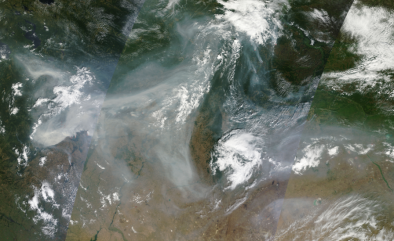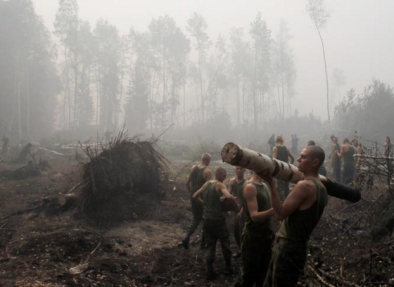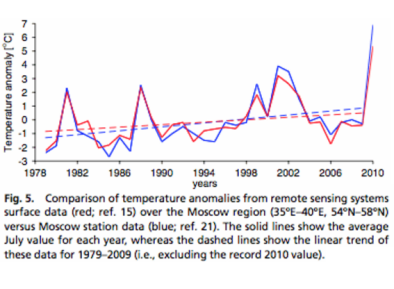Science Source
Increase of extreme events in a warming world
- Develops a theoretical approach to quantify the effect of long-term trends on the expected number of extremes in generic time series, using analytical solutions and Monte Carlo simulations
- Applies the method to study the effect of warming trends on heat records
- Finds that the number of record-breaking events increases approximately in proportion to the ratio of warming trend to short-term standard deviation
- Finds that short-term variability thus decreases the number of heat extremes, whereas a climatic warming increases it
- For extremes exceeding a predefined threshold, the dependence on the warming trend is highly nonlinear
- Finds that the sum of warm plus cold extremes increases with any climate change, whether warming or cooling
- Estimates that climatic warming has increased the number of new global-mean temperature records expected in the last decade from 0.1 to 2.8
- Estimates for July temperature in Moscow that the local warming trend has increased the number of records expected in the past decade fivefold, which implies an approximate 80% probability that the 2010 July heat record would not have occurred without climate warming
Related Content
Science Source
| Doklady Earth Sciences
Blockings in the Northern Hemisphere and Euro-Atlantic region: Estimates of changes from reanalyses data and model simulations
I. I. Mokhov, M. G. Akperov, M. A. Prokofyeva et al
Headline

Apr 11, 2016 | Think Progress
Russian President Medvedev: “What is happening now in our central regions is evidence of this global climate change, because we have never in our history faced such weather conditions in the past.”
Headline

Apr 11, 2016 | Reuters
Heat, smoke sent Russia deaths soaring in 2010: govt
Headline

Apr 11, 2016 | Think Progress
Bombshell: Study Finds 80% Chance Russia’s 2010 July Heat Record Would Not Have Occurred Without Climate Warming


